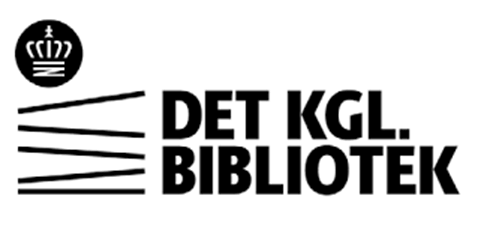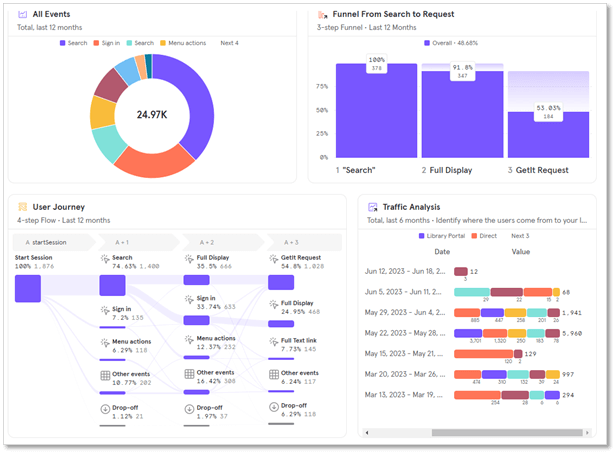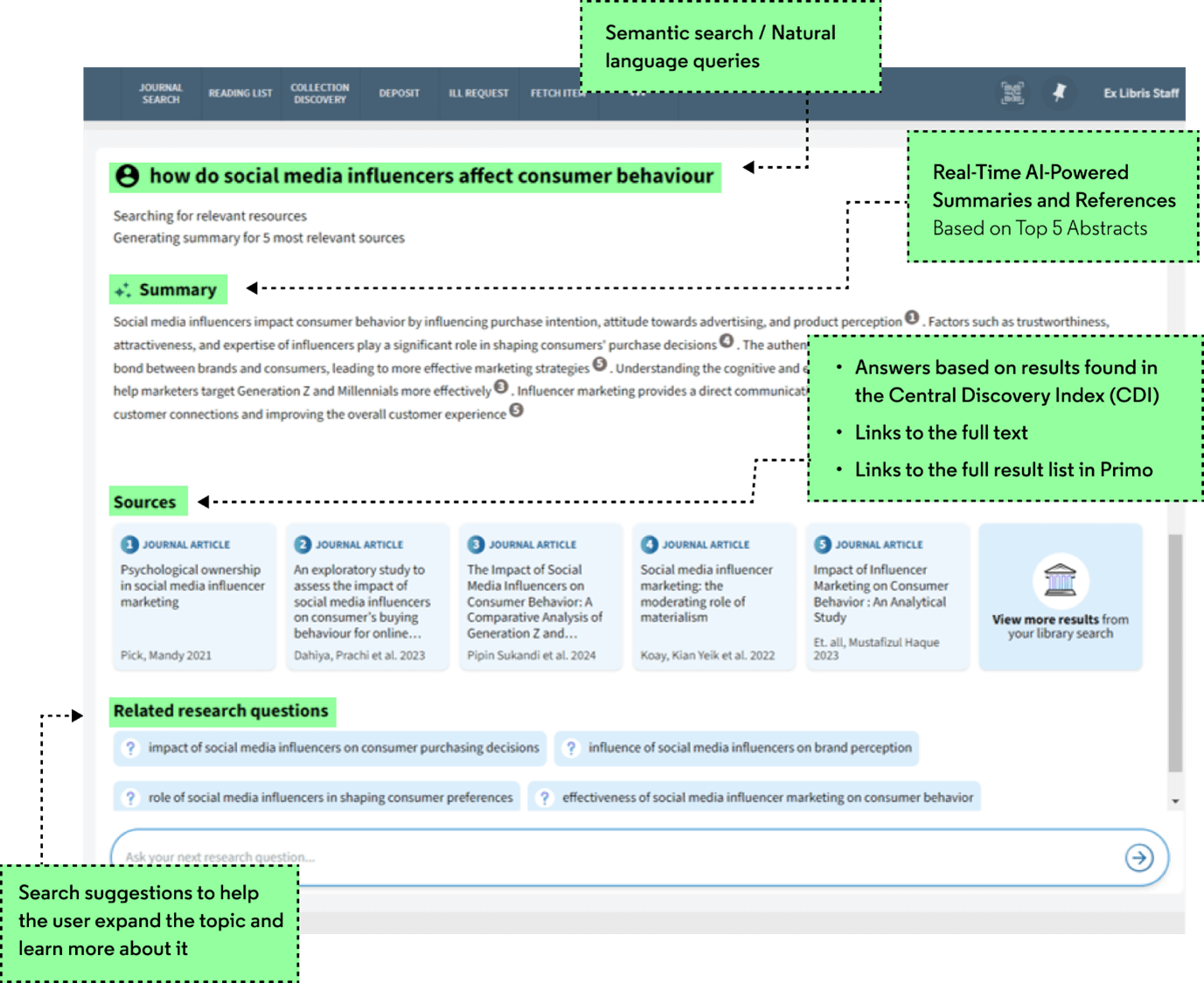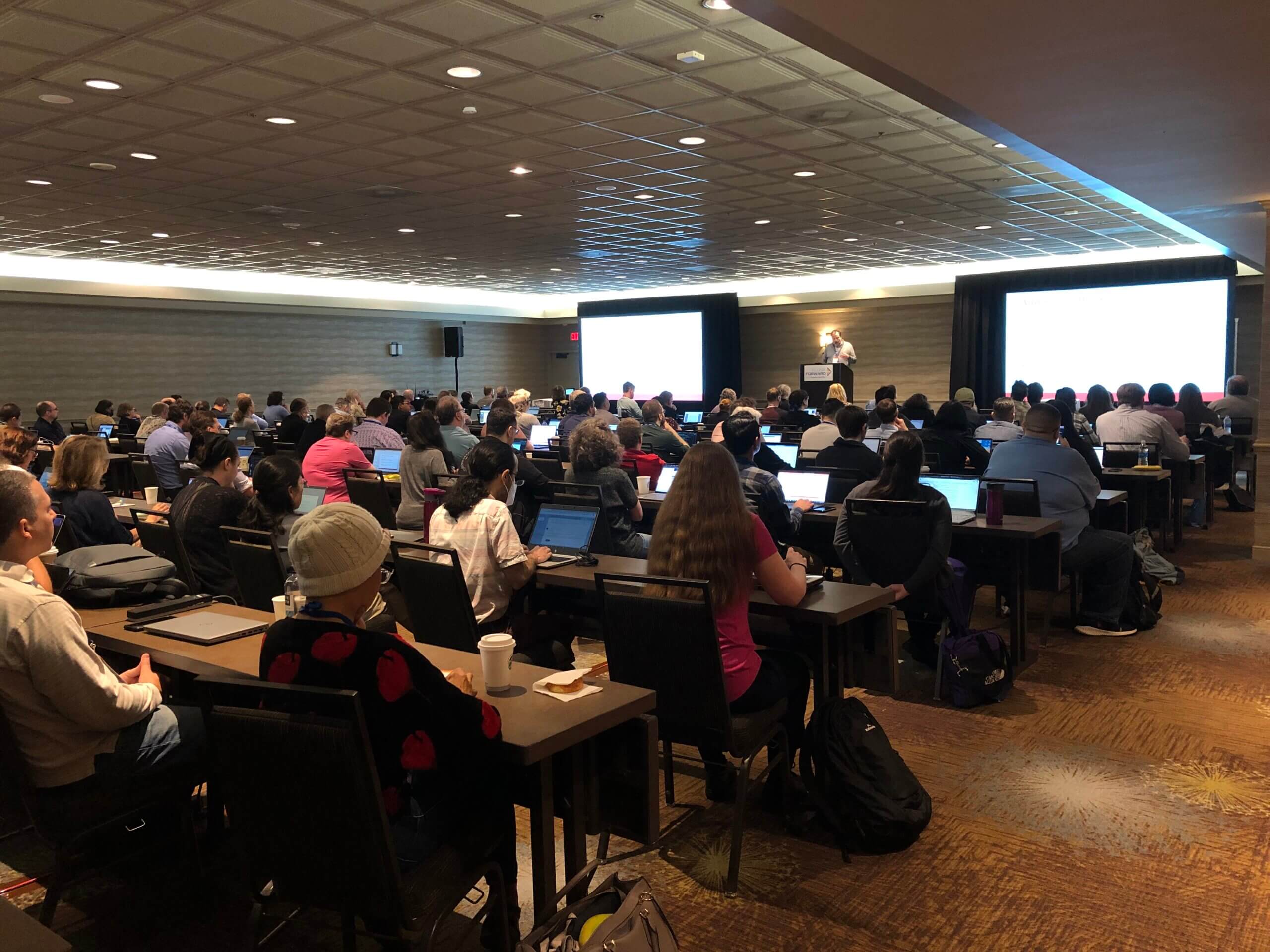Primo
Optimize discovery and collection usage
Designed in close collaboration with the library community through a dedicated UX focus group, the new user interface is intuitive and streamlined. This Primo library discovery service is tailored to the specific needs of academic libraries and their users, offering a richer and modern discovery experience.
The new user interface is a key element of the Next Discovery Experience (NDE), which places users at its core and aims to enhance research efficiency, enhance the way academic research is conducted. Designed to highlight library collections, the Next Discovery Experience ensures a seamless transition from resource management to discovery.
A generative AI-powered library discovery service designed to enhance patron engagement
A generative AI-powered library discovery service enhances patron engagement by enabling intuitive searches and exploration. It helps library users make the most of trusted library resources through a more natural and efficient discovery experience.
Powered by a RAG (Retrieval Augmented Generation) architecture and grounded in the extensive Ex Libris CDI (Central Discovery Index), the Primo Research Assistant provides users a reliable starting point for their academic research. It supports proper source referencing and ensures accurate attribution to original authors.
The Discovery Experience Users Expect
Did you know that more than 85%* of college students are using AI in their studies? This shift is changing the expectations of library technology, with students demanding faster and more personalized results. It’s especially true with discovery systems which is the entry point to your library’s collection. Give your library users access to a wealth of trusted scholarly materials and the most relevant resources related to their research. This library discovery service includes smart recommendations in a single search interface, anytime, and from any device.
Maximize the Usage of Your Library Resources
Using an open API, any library can integrate the Primo library discovery service into their existing systems and provide an academic AI powered research experience for their users. Expose a wealth of content and resources to your patrons via the Central Discovery Index. Increase the use of unique library content via showcases and special collections. Promote the visibility and accessibility of your library services via QuickLinks and other features. Demonstrate value to decision-makers through advanced analytics.
ExpandThe stars are aligned, and we are actively working towards the Next Discovery Experience, including development of:
- New UX for Primo Pages
- Linked Data Experience
- User Engagement Analytics
- Taking Advantage of New AI Technology
Support the Art of Librarianship
Primo empowers libraries by helping them operate more effectively and efficiently. It offers a wide range of user interface customizations, open APIs, and seamless integrations with Alma and other library solutions. Libraries can take advantage of advanced harvesting and normalization tools, adjust how collections are displayed and fine-tune search result rankings to meet local needs. The library discovery service also connects discovery with broader academic research systems and enhances productivity through robust analytics and end-to-end workflows. Designed for both individual institutions and consortia, Primo empowers libraries to improve the user experience and focus more strategically on high-impact services.
Embedding discovery in the academic ecosystem
Connect your discovery platform with Alma’s library management system research solutions, teaching and learning platforms, student mobile devices and apps and other tools, with Primo’s out-of-the-box product integrations and open APIs.
Connect your discovery platform with Alma’s library management system research solutions, teaching and learning platforms, student mobile devices and apps and other tools, with Primo’s out-of-the-box product integrations and open APIs.
Read LessPrimo
Optimize discovery and collection usage
The new user interface is a key element of the Next Discovery Experience (NDE), which places users at its core and aims to enhance research efficiency, enhance the way academic research is conducted. Designed to highlight library collections, the Next Discovery Experience ensures a seamless transition from resource management to discovery.
A generative AI-powered library discovery service designed to enhance patron engagement
Powered by a RAG (Retrieval Augmented Generation) architecture and grounded in the extensive Ex Libris CDI (Central Discovery Index), the Primo Research Assistant provides users a reliable starting point for their academic research. It supports proper source referencing and ensures accurate attribution to original authors.
The Discovery Experience Users Expect
Maximize the Usage of Your Library Resources
The stars are aligned, and we are actively working towards the Next Discovery Experience, including development of:
- New UX for Primo Pages
- Linked Data Experience
- User Engagement Analytics
- Taking Advantage of New AI Technology
Support the Art of Librarianship
Our team of experts looks forward to hearing from you
Ex Libris Announces Development and Ongoing Release of Next Discovery Experience
Click here to learn more about the Ex Libris Next Discovery Experience and its four continuous and evolving pillars:
– New UX for Primo pages
– Linked Data experience
– User engagement analytics
– Creating new experiences with AI discovery assistance
Primo’s Latest News & Blog
Check out the wealth of content
-
Records in the Central Discovery Index (CDI)
-
Searches weekly
-
Content neutral
Ex Libris Webinars
More about Primo
Our Services
Services
Services
Services
Services

A library discovery service is a powerful search tool provided by libraries to enable users, such as students, faculty, and researchers, to search and discover a wide range of library resources from a single interface. These resources can include books, e-books, journals, articles, databases, multimedia items, and more.
Library discovery tools assist users in finding and accessing various resources available within library collections. These tools encompass a range of platforms and systems designed to streamline the search process. For instance, library catalogs serve as comprehensive databases with information about books, journals, and other materials. Discovery layers and relevancy ranking offers a unified interface for searching across multiple library resources, including catalogs, databases, and digital repositories. Interlibrary loan systems facilitate the borrowing and lending of materials between libraries.
Primo streamlines access to library resources through a single, always-updated discovery solutions interface for all types, formats and providers. The library discovery service also supports information literacy with contextually related recommendations alongside search results and the option to explore collections managed in Alma. In addition, a virtual Patron Library Card can display holds, requests, fines and messages.
Researchers benefit from comprehensive library resource discovery solutions, with search results including contextually related recommendations for further research. Such relations can be created through a citation trail, book and article recommendation services, book reviews and interlinked book chapters. Patrons can also navigate library collections independently, with a virtual browse functionality, to find associated items through online catalogs and other digital resources.
.
The integration of Primo with Alma library management system simplifies backend processes for academic library discovery, reducing the time needed for setup, configuration, data updates, and more. Libraries can boost productivity and shift focus to strategic services, including increasing library outreach through a customized discovery experience and maximizing resource investments. Library holdings can also be easily exposed to the web through an SEO-ready metadata structure.
5.2B records in the Central Discovery Index of scholarly and academic resources of all kinds – journals, articles, books, videos, music, and more; local library catalogs and repositories, including electronic and print journals; Open Access content; commercial resources; and all ProQuest content. The Primo library discovery service platform includes a link resolver for electronic, digital and physical holdings, and the capability to search within journals for specific articles.
Yes. First, as a solution on the Ex Libris Higher Ed Platform, Primo is tightly integrated with Alma. Second, Primo offers a rich set of APIs for seamless integration with institutional and third-party systems. Primo meets faculty, researchers and students where they are, with branded discovery services, adaptable interfaces, and customization options (with Primo Studio Extend) that improve the user experience.
Primo library discovery service tightly integrates with Alma and other Ex Libris library systems and management, teaching and learning, resource sharing, and student engagement services. Integrations with other ProQuest and Clarivate services – such as Web of Science, RefWorks, EndNote, Syndetics Unbound, etc. – are also available. Primo discovery searches include access to ProQuest content by default and the Primo solution automatically updates in response to developments in Alma.
Yes. Collaboration takes place through established channels such as the Product Working Groups, NERS and Idea Exchange, as well as through focus groups and ad-hoc discussions. Input from the community is a key driver of development, while users share innovations through the Primo Studio Extend forum.
Yes. Libraries sharing management of metadata, acquisitions, resources, and other services can easily allow patrons to search across their network, offering an accessible user experience. How patrons search other institutions, what holdings they see, and how requests are handled can be defined by members of the network. For example, patrons might be allowed to request materials directly from other libraries while signed into their own local Primo site.
Primo library discovery service lives on the Ex Libris Higher Ed Platform, where it enjoys all the data security and privacy measures of the Alma environment and other Ex Libris products. For example, unique content is protected by the Amazon S3 cloud storage service, file integrity is continually verified, and any checksum discrepancies are automatically corrected. These safeguards are integral to Alma, relieving the library of all set-up and maintenance worries.
Absolutely not! Primo’s easy-to-use, intuitive end-user interface can be branded and seamlessly embedded in your institution’s learning management system. Librarians manage course materials, basic functions, and administer the Primo library discovery service through Alma, the system that they use every day. Further, implementation support and customer service is provided to all libraries, and additional resources to support the process, such as tutorials, guides and how-to documents are available as well.
Certainly. The Ex Libris Central Discovery Index (CDI) includes multiple Open Access and OER collections – such as Open SUNY, OpenStax, and Open Textbook Library – which are fully discoverable in Primo.
Records are updated in Primo in real time, without the need for export processes or reliance on OAI or FTP. Inventory changes are immediately integrated, and newly cataloged items are visible to patrons within minutes. Similarly, conditions for searches on a defined subset can be set and local metadata fields can be defined for display and search without the need for re-indexing before release to patrons.



























































































































